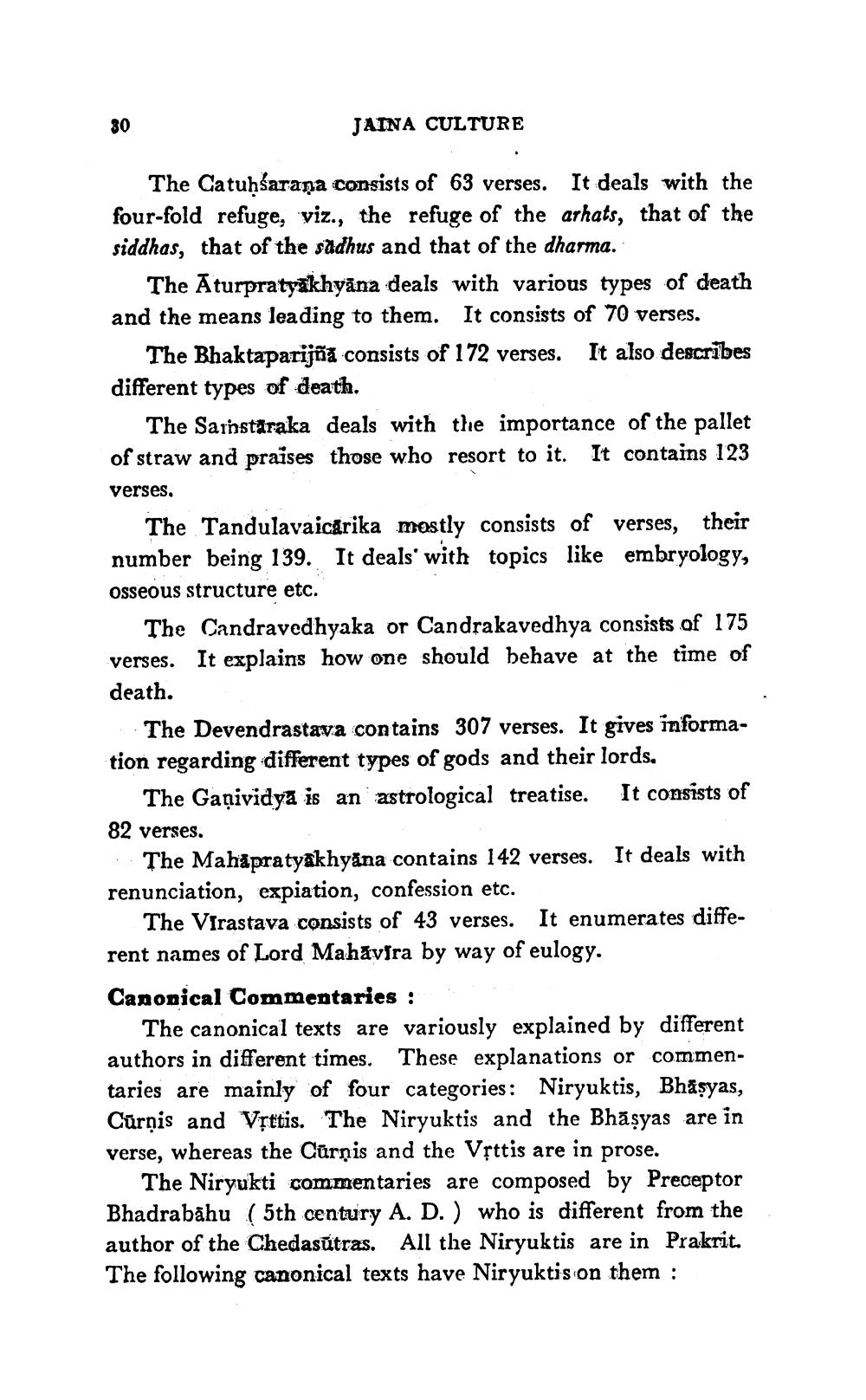________________
30
JAINA CULTURE
The Catuḥsarana consists of 63 verses. It deals with the four-fold refuge, viz., the refuge of the arhats, that of the siddhas, that of the sadhus and that of the dharma.
The Aturpratyakhyāna deals with various types of death and the means leading to them. It consists of 70 verses.
The Bhaktaparijña consists of 172 verses. It also describes different types of death.
The Sarnstäraka deals with the importance of the pallet of straw and praises those who resort to it. It contains 123 verses,
The Tandulavaicárika mostly consists of verses, their number being 139. It deals' with topics like embryology, osseous structure etc.
The Candravedhyaka or Candrakavedhya consists of 175 verses. It explains how one should behave at the time of death.
The Devendrastava contains 307 verses. It gives information regarding different types of gods and their lords.
The Gaņividya is an astrological treatise. It consists of 82 verses.
The Mahápratyakhyana contains 142 verses. It deals with renunciation, expiation, confession etc.
The Virastava consists of 43 verses. It enumerates different names of Lord Mahavsra by way of eulogy. Canonical Commentaries :
The canonical texts are variously explained by different authors in different times. These explanations or commentaries are mainly of four categories: Niryuktis, Bhäşyas, Cūrņis and VȚttis. The Niryuktis and the Bhāşyas are in verse, whereas the Cūrņis and the Vșttis are in prose.
The Niryukti commentaries are composed by Preceptor Bhadrabāhu ( 5th century A. D.) who is different from the author of the Chedasūtras. All the Niryuktis are in Prakrit. The following canonical texts have Niryuktis on them :




